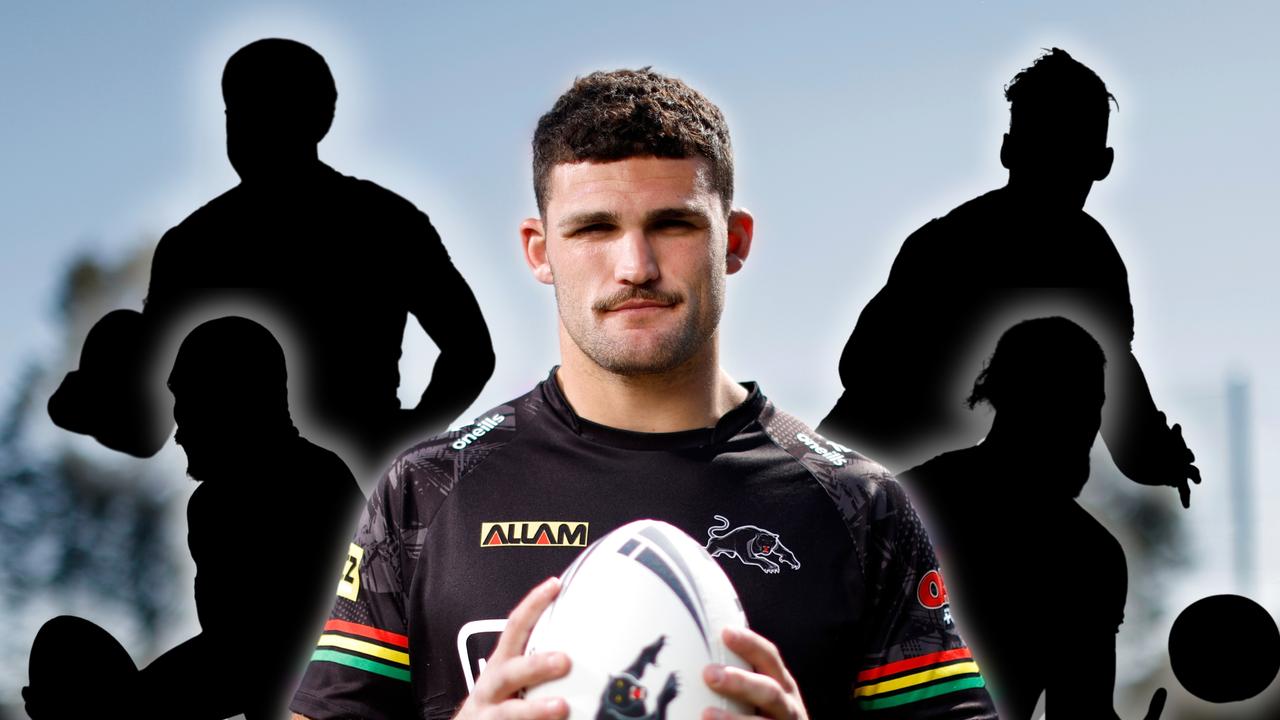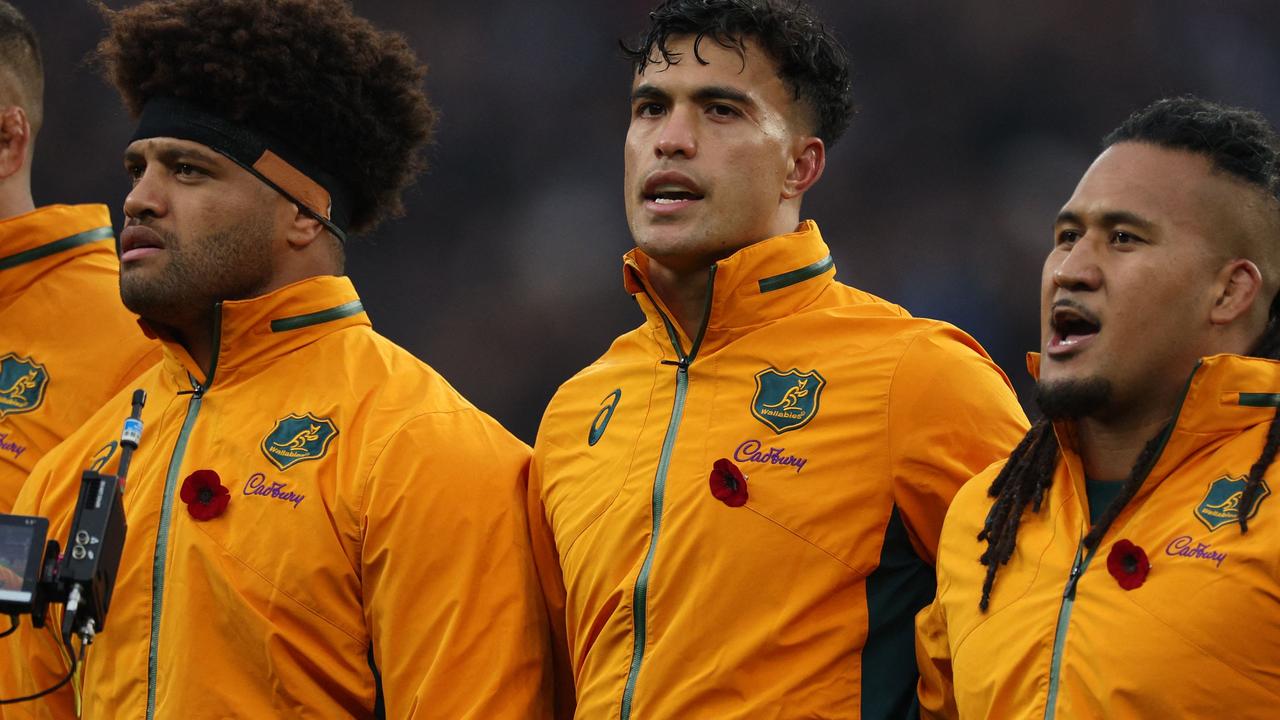Former Wallaby Brett Robinson vying for World Rugby’s top job
Australian rugby is eyeing the prospect of a victory off the pitch which could dramatically shift the fortunes of the underperforming code. JULIAN LINDEN has the details.
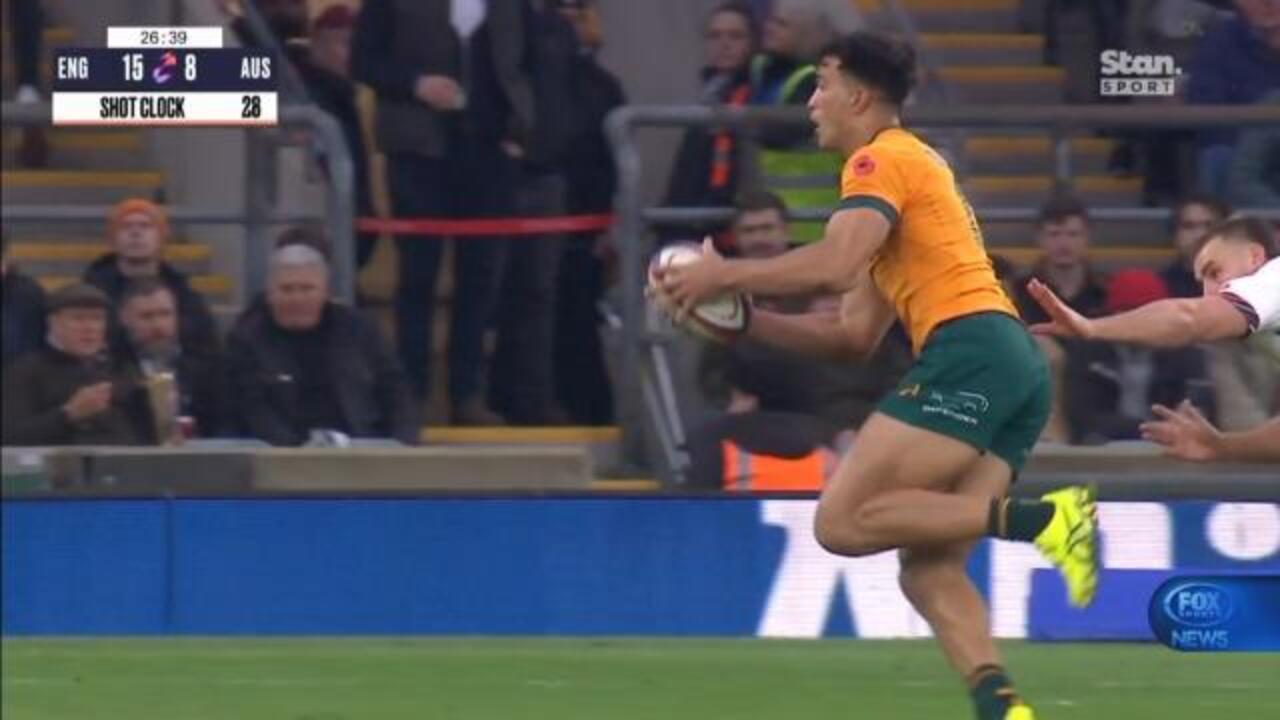
Rugby
Don't miss out on the headlines from Rugby. Followed categories will be added to My News.
Still revelling in their stunning breakthrough success on the field after the Wallabies slew England on the weekend, Australian rugby is eyeing the prospect of an even bigger victory off the pitch that could dramatically shift the fortunes of the underperforming code.
Lost in the hype over Joseph-Aukuso Suaalii’s spectacular return to his favourite game is the anti-headline news that on Thursday, World Rugby will elect its new chair and executive board.
Even for diehard rugby fans, boardroom elections are duller than TMO referrals but this week’s ballot is looming as the most critical in years because of the way it will potentially reshape the global game.
And for the first time, an Aussie is in the running for the top job, with former Wallabies flanker Brett Robinson throwing his hat in the right for the position of World Rugby chairman, the most powerful role in the game.
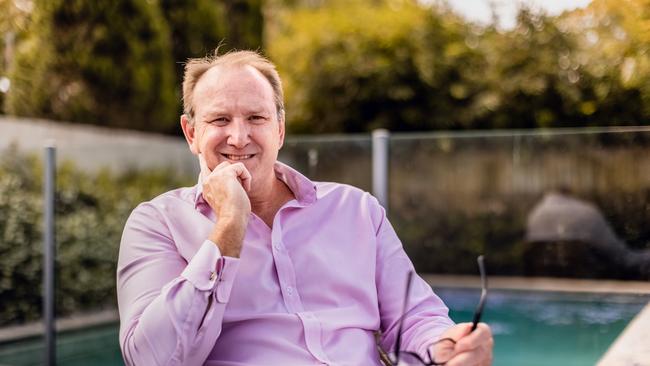
He’s facing two opponents, both from continental Europe: Abdel Benazzi, the former French national captain who played for Les Bleus in the 1999 World Cup final against the Wallabies, and Italian Andrea Rinaldo, another former international who has gone on to become a renowned professor of hydrology and water resources.
With 72-year-old Bill Beaumont stepping down after eight years at the helm, his successor will take over at a time when the game is sitting stalled at the crossroads.
While international rugby is going gangbusters at the moment, other parts of the game are struggling because of the dawdling approach by its leaders to modernise and grow the sports faster outside its traditional strongholds.
A sport rife with backroom politics, no-one from Oceania, Africa, Asia or the Americas has ever ascended to the role of chairman because the game’s European powers have mostly voted together as a block.
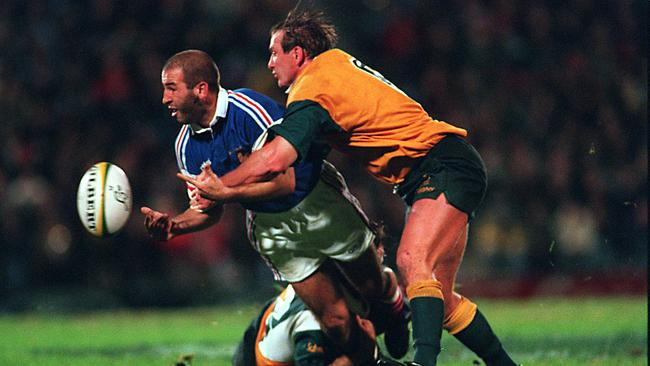
But the winds of change are blowing harder this time, with the old geographical alliances already split over the future direction the game should take.
Implausible in years gone by, Robinson’s nomination has been formally seconded by England, with Australia’s bitter trans-Tasman rivals New Zealand also publicly supporting the Queensland doctor.
Benazzi’s nomination has been seconded by South Africa while the Irish have thrown their eight behind Rinaldo, who is regarded as the longshot of the trio with either Robinson or Benazzi expected to come up trumps when the 52 voting members cast their votes at a secret ballot in Dublin.
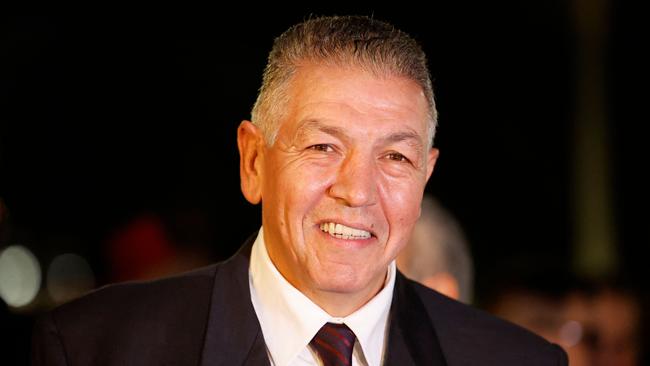
Rugby politics can often be as underhanded and baffling as the sport’s breakdown laws but Robinson has openly shown his hand, campaigning on his past record “fighting for progress, innovation and equity around issues of player safety, law reform and the game-changing potential of a global calendar.”
Speaking last week on “The Good, The Bad and The Rugby” podcast, Robinson went further, making it clear that World Rugby’s next leaders need to accelerate changes to fulfil the game’s enormous untapped potential.
“We need to be moving faster on listening to our fans and responding around the way we deliver the product,” he said.
“With the greatest respect to the team, we’re still delivering things as we did 30 years ago.”
Few in the sport will disagree with his sentiments, but the sceptics will wonder whether the appetite to cast aside self-interest and adopt meaningful reform is really there.
The 54-year-old Robinson says it is.
“I think I’ve got the support of what I believe to be a coalition of countries that are really looking to evolve and shift together and take opportunities,” he said on the podcast.
“This is not about hemispheres, it’s about the game and taking opportunity.”
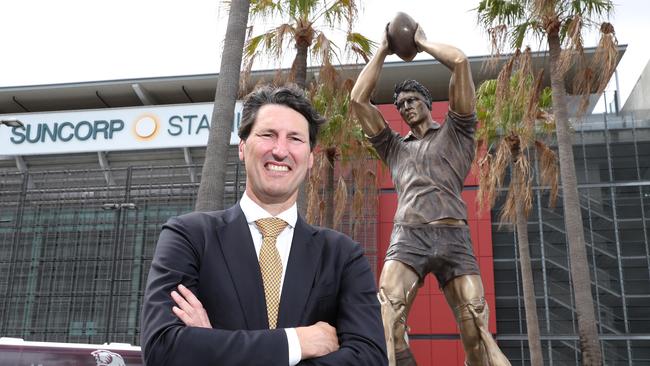
Robinson isn’t the only Wallaby looking for a seat at rugby’s top table.
Two-time World Cup winner John Eales has been nominated for a place on the executive board.
He is one of 13 candidates vying for six available spots, which are being decided for the first time under a new conference model.
Eales is one of four candidates applying for the two high performance southern hemisphere positions. The others are Mark Alexander (South Africa), Bart Campbell (New Zealand) and Agustin Pichot (Argentina).
More Coverage
Originally published as Former Wallaby Brett Robinson vying for World Rugby’s top job




